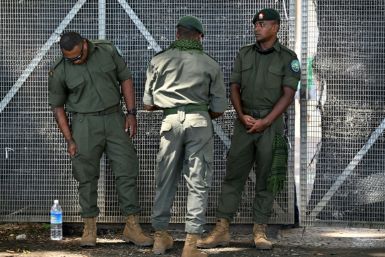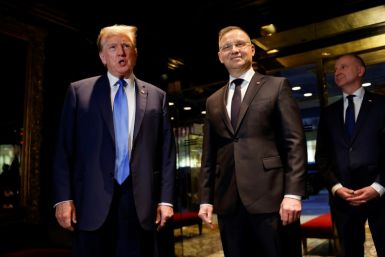Australia Urged To 'Do More' in Ebola Fight Than Send Money; Public Warned Against Fake Ebola Treatments Online

With months into the Ebola outbreak, no official treatment or vaccine for the virus has been found. The U.S. Food and Drug Administration has issued warnings to three private companies regarding their claims of a treatment to stop Ebola. According to reports, the warning letters were sent to Natural Solutions Foundation based in New Jersey, dTERRA International LLC and Young Living based in Utah.
The Ebola outbreak in West Africa has caused 2,800 deaths since it first began in Guinea earlier in the year. The World Health Organisation had predicted up to 20,000 more people could be infected with the virus before it can be taken under control.
The FDA said it had become aware of the products claiming to cure Ebola last month when they were being sold online. Before the letters were sent to the three companies, their websites and social media accounts were subjected to a review. The FDA wants the companies to explain their fraudulent claims and reveal their plans to correct the said violations.
Meanwhile, Australians are currently working under international aid agencies in the fight against Ebola in West Africa. Aid agencies have repeatedly called for a massive pooling of resources on the ground to control the virus.
In an ABC report, Australian nurse Libby Bowell is with the International Federation of the Red Cross in Liberia. She said she and her colleagues feel "desperate" because they need more people working with them on the ground. Local residents are being taught how to take care of themselves without getting infected. Bowell described how strict safety measures have made it difficult for them to do their jobs.
Aid agencies said they will need 20 times more resources currently on the ground. The United States has previously pledged to send $70 million and 3,000 troops to help. Other countries have sent their own medical teams to aid health workers.
Although Australia has sent its own donation, Paul McPhun, head of Medecins Sans Frontieres Australia, said the country needs to do more. He said there was no reason for Australia not to follow the lead of the U.S., the UK, China and Cuba in terms of sending response teams on the ground.
Like the rest of the world's scientists, Australian researchers are also playing their part in trying to find an effective vaccine for Ebola. CSIRO's Dr Glenn Marsh is leading a team of scientists in developing a treatment to trigger the body to react differently to the Ebola virus. The team is studying two different types of Ebola viruses, one being less harmful than the one raging in West Africa.






